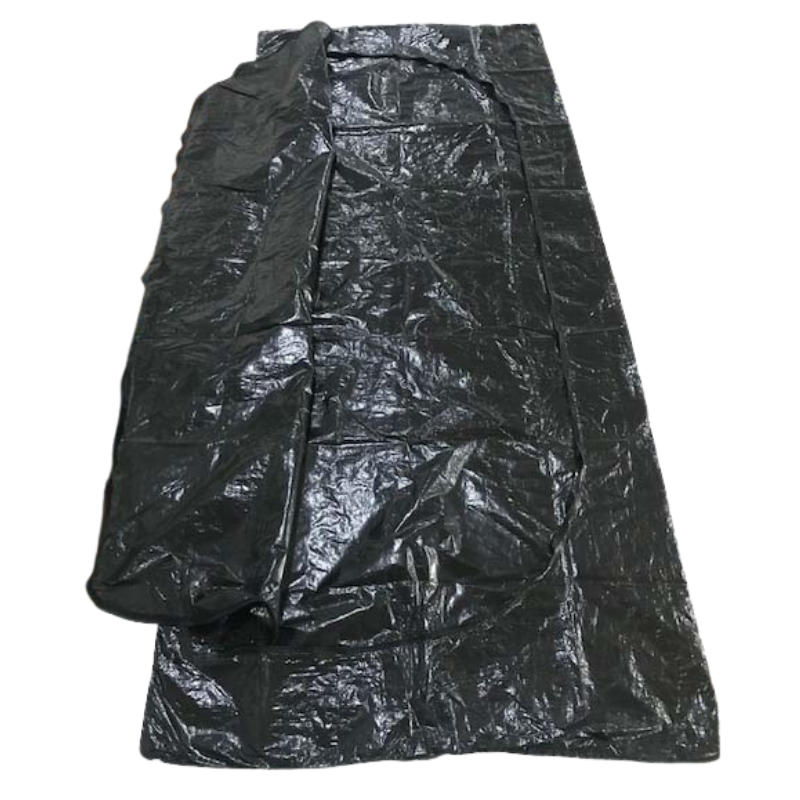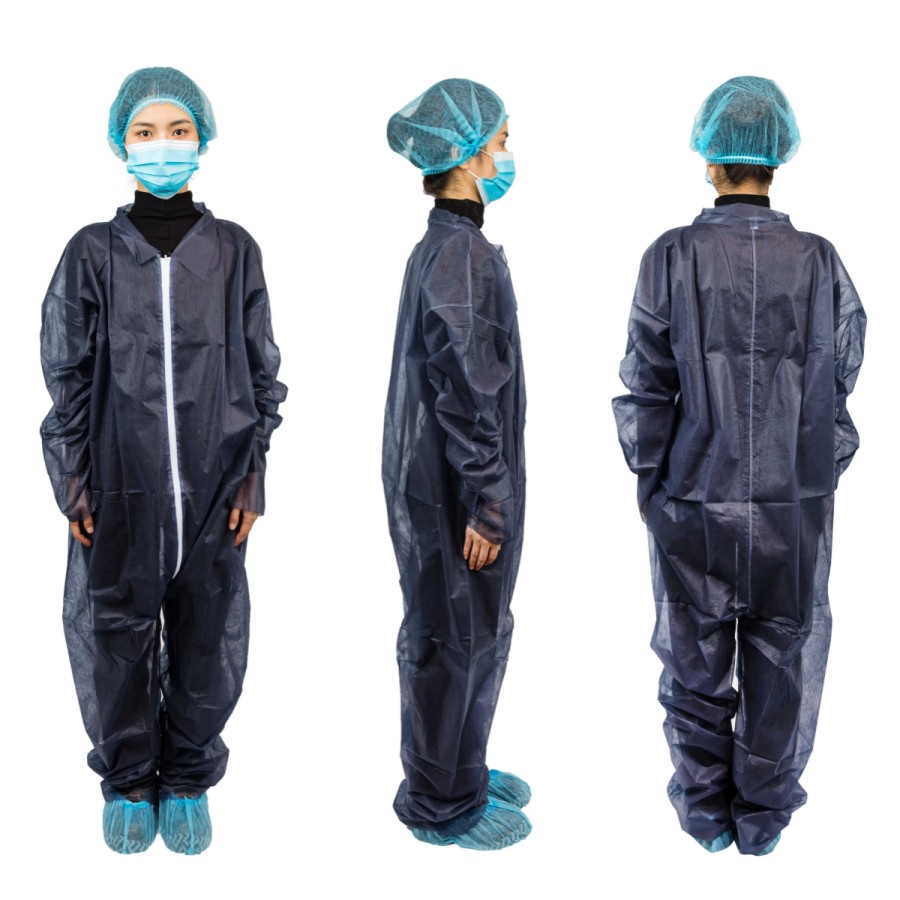Safe food starts with clean hands. Disposable gloves are a simple tool with a big job. They protect food. They protect people. They help teams follow food industry regulations every day. This guide explains how القفازات التي تستخدم لمرة واحدة support rules, reduce risk, and improve daily work.
Why disposable gloves matter
Food industry regulations focus on clean hands, clean tools, and safe food contact. Disposable gloves help you:
- Block germs from hands to food
- Reduce التلوث التبادلي
- Control allergens moving from one task to another
- Show visible hygiene during checks and audits
- Build a clear habit of change and clean work
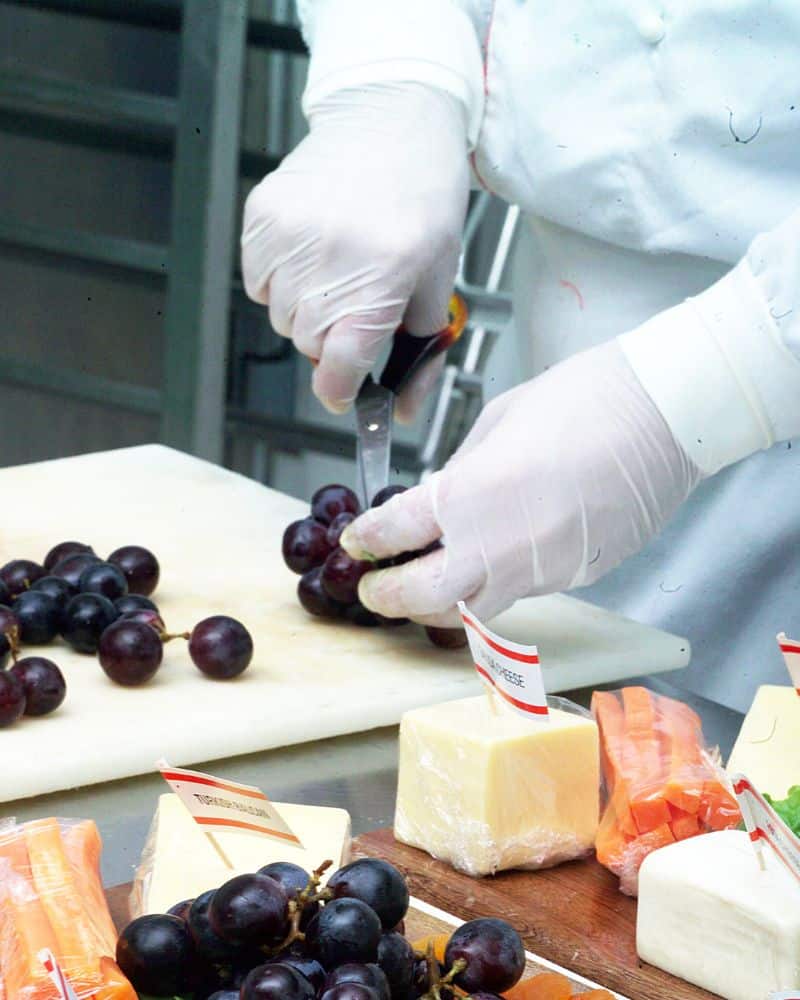
When used the right way, they make rules easier to meet.
What regulations expect from glove use
Common goals in food industry regulations include:
- Hand hygiene before putting on gloves
- Barrier protection during food contact
- Glove changes at key moments
- No re-use of single-use gloves
- Training and clear SOPs
- Records and checks to prove good practice
Gloves do not replace hand washing. They work with it.
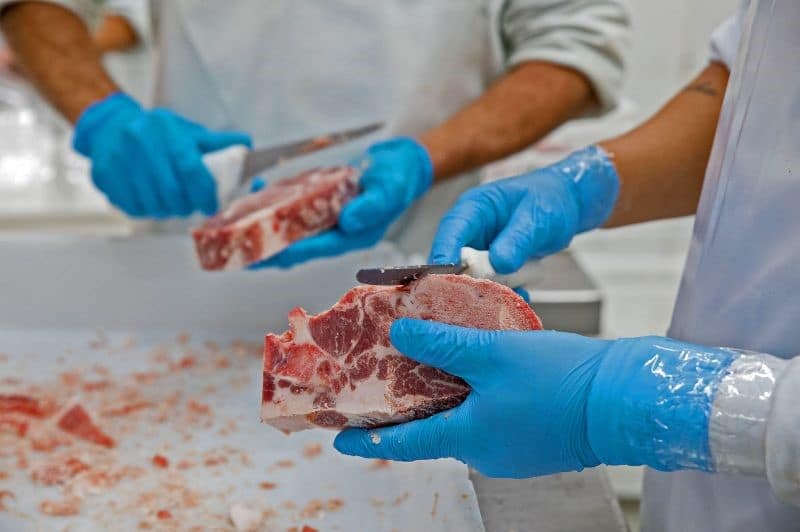
The role of disposable gloves in daily control
Disposable gloves serve several key roles:
- Barrier control: They keep sweat, oils, and germs off food
- Cross-contact control: They stop raw-to-ready transfer
- Allergen control: They help limit peanut, dairy, and other allergen spread
- Skin safety: They protect hands from spices, acids, and dyes
- Audit readiness: They show clean, standard work during inspections
Each role supports meeting food industry regulations with proof you can see.
Pick the right glove for the job
Use gloves that match the work. This supports both safety and rules.
- Material fit to task
- Light, fast changes for portion and pack-out
- Stronger film for wet or oily prep
- Clear film for visual checks
- See a budget-friendly option: Disposable CPE plastic glove
- Size and comfort
- Stock XS to XL
- Good fit prevents tears and improves grip
- Comfort supports longer, steady focus
- Grip and dexterity
- Textured fingertips for wet tools
- Smooth film for delicate garnish
- Color by zone
- Color-coded gloves help teams follow SOPs
- One color for raw, one for ready-to-eat, one for cleaning

Proper glove use that meets rules
Make glove use simple, clear, and repeatable.
- Before you put on gloves
- Wash and dry hands
- Pick the right size
- Check the film for damage
- Change gloves
- After touching raw meat, fish, or eggs
- Before handling ready-to-eat food
- After touching face, phone, door, or trash
- After cleaning or using chemicals
- When torn, sticky, or wet inside
- Between tasks and every set time on line, as your SOPs require
- After removal
- Peel inside out
- Toss in the right bin
- Wash hands again
These steps help you meet food industry regulations with less stress.
Pair gloves with other food-safe PPE
Gloves work best with simple, low-cost PPE that also supports food industry regulations:
- Stop splash and stains with a waist-to-knee barrier: مريلة بلاستيكية من البولي إيثيلين البولي إيثيلين يمكن التخلص منها
- Keep hair secured over prep lines: Disposable hair nets for food service and cooking
- Protect sleeves in wet or oily work: Disposable non woven sleeve covers
- Set up bulk protection near high-volume lines: PE Gown Rolls for Food Factories
This layered setup reduces change rate, improves hygiene, and supports audits.
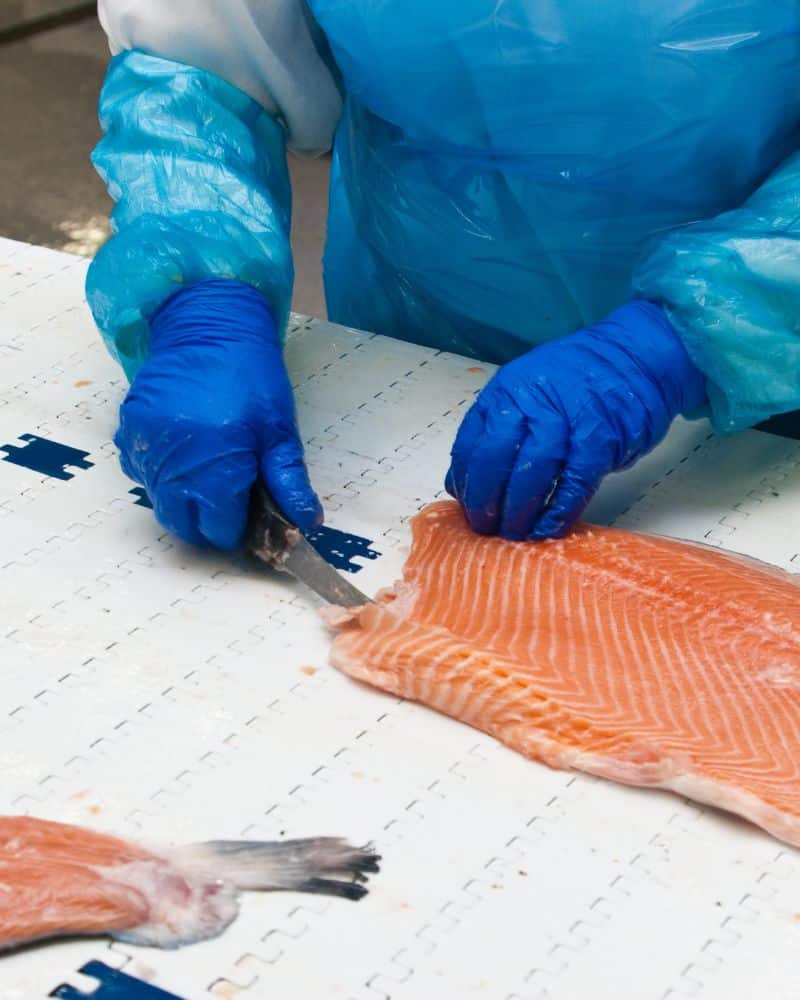
Training that sticks
Strong training helps teams use القفازات التي تستخدم لمرة واحدة the right way.
- Show and tell
- Teach the why: protect food, protect people, meet rules
- Demonstrate proper donning and doffing
- Practice quick changes at the station
- Posters near sinks
- Use simple steps with pictures
- Keep messages short and bold
- Lead by example
- Supervisors model the standard
- Quick praise for good glove habits
- Refresh often
- Short huddles at shift start
- Focus on one tip per day
Training plus reminders build a safe routine that meets food industry regulations.
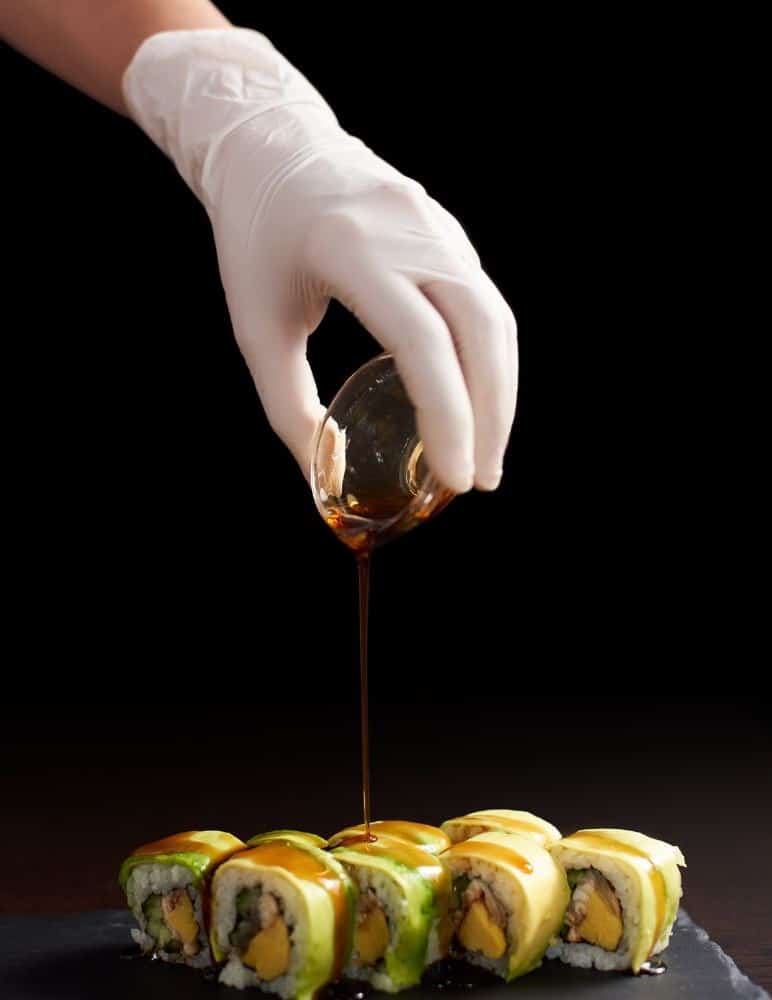
SOPs and records that support compliance
Write SOPs in plain words. Keep them where staff can see them.
- SOP basics
- When to wash hands
- When to change gloves
- What glove to use on each task
- How to dispose and restock
- Simple records
- Shift checklists for glove stock and sizes
- Line checks for change points
- Notes on any issues and fixes
These steps help with audits and show steady compliance.
Storage and inventory
Good storage protects glove quality and speeds change.
- Keep cases in a cool, dry place
- Avoid sun and heat
- Do not crush boxes
- Use first in, first out
- Place the most-used sizes at eye level
- Keep boxes sealed until use
Track usage by station. Fix shortages fast. This keeps glove use aligned with food industry regulations.
Audit-ready habits
Be ready any day with simple habits:
- Gloves on hands before food contact
- Fresh pair for each new task that needs it
- No re-use of single-use gloves
- Signs posted: wash, change, dispose
- Bins nearby for quick glove toss
- Stock visible and easy to reach
These habits show clear control and help pass checks.
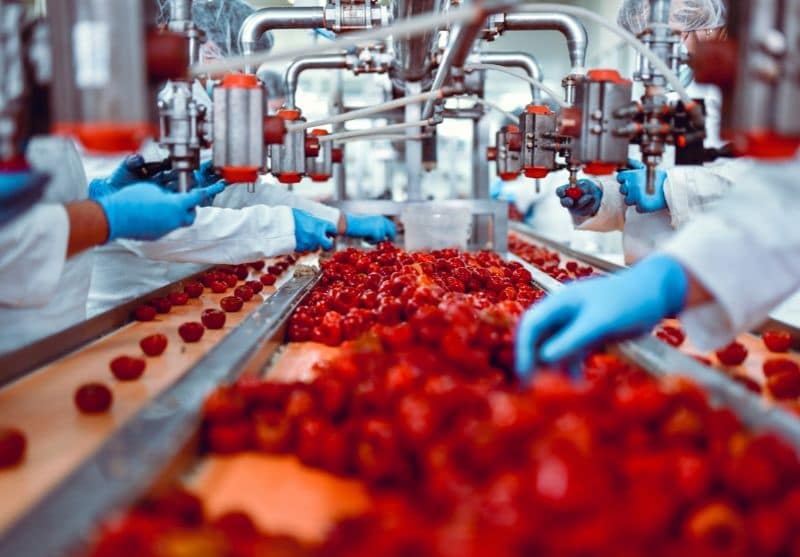
Cut waste, not safety
You can reduce waste and still meet food industry regulations.
- Use light-duty gloves for high-change work
- Use stronger film only where needed
- Right-size every station; avoid one-size-for-all
- Buy by the case to control cost per pair
- Review usage data each month
- Coach to avoid double-gloving unless your SOPs require it
Smart choices protect food and budgets.
Common mistakes to avoid
- Wearing gloves without washing hands first
- Using the same pair across raw and ready tasks
- Picking the wrong size, leading to tears and drops
- Reaching for phones or doors with food gloves on
- Storing gloves near heat or steam
- Running out of common sizes on peak shifts
Fix these fast to keep steady compliance.
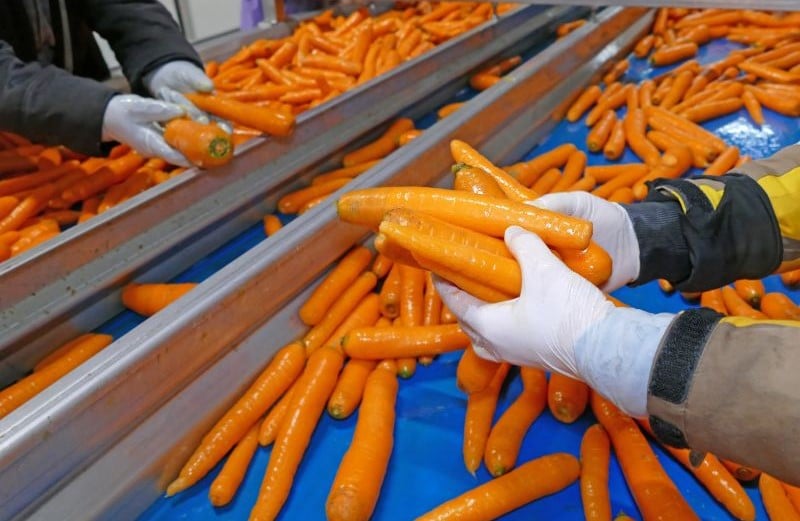
Quick checklist for managers
Use this list to review your line:
- Are القفازات التي تستخدم لمرة واحدة stocked at every station?
- Are sizes from XS to XL easy to reach?
- Are change points clear and posted?
- Are staff washing hands before new pairs?
- Are bins close to toss used gloves?
- Are aprons, hair netsو sleeve covers in place?
- Is storage cool, dry, and tidy?
- Are SOPs and records up to date?
A five-minute check can prevent a big problem.
Case tips by area
- Raw prep
- Focus on fast changes
- Use color to flag raw-only zones
- Ready-to-eat
- Extra care on hand wash and glove changes
- Avoid touching non-food surfaces
- Pack-out
- Light-duty film to speed movement
- Keep spare boxes at each table
- Cleaning
- Change gloves after chemicals
- Wash hands before food work resumes
Match glove habits to the risk in each area.
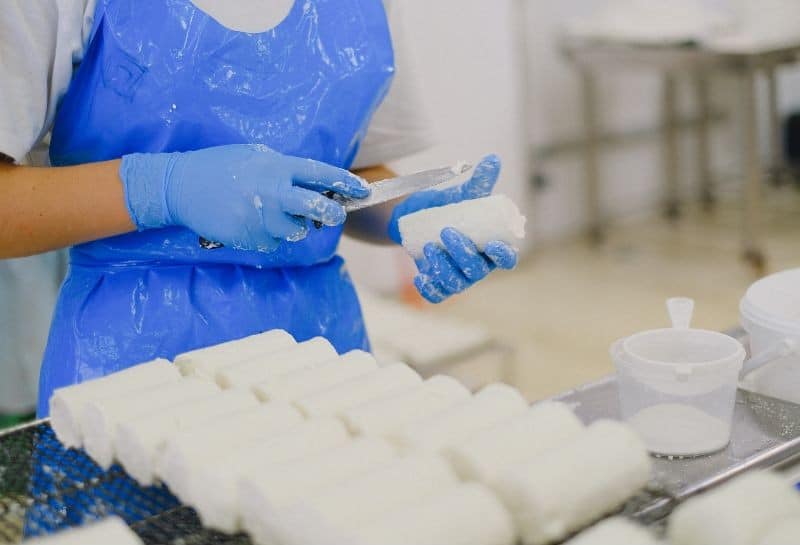
Final thoughts
The goal is simple: safe food, safe people, and steady compliance. Disposable gloves make that possible. They help teams meet food industry regulations through clear barriers, clean habits, and fast changes. Choose the right glove for each task. Train the steps. Pair gloves with simple PPE like aprons, hair netsو sleeve covers. Keep stock ready. Check the line often.
With these steps, you will show the true role of disposable gloves in meeting food industry regulations. You will protect your guests. You will support your team. And you will pass inspections with confidence.




